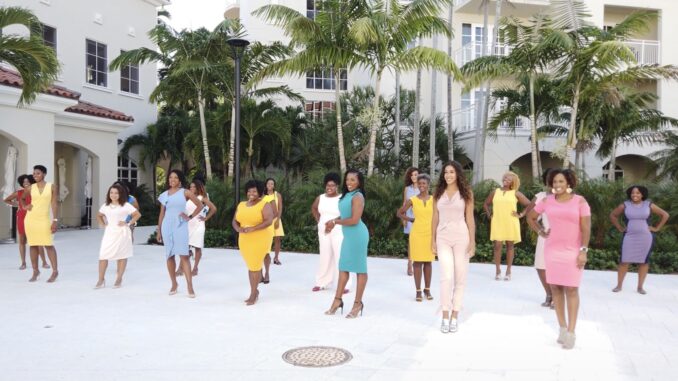
By Chloe Godbold
NABJ Monitor
Natural hairstyles for women of color continues to be a hot topic for TV journalists.
Raquel Harrington is a multimedia journalist at FOX61 in Hartford, CT. She’s been wearing her hair naturally since early 2019.
“I can tell you the first time I did it I was terrified,” Harrington said. “It’s on my social media platforms. The day I decided to wear my natural hair, it was the day I decided to wear braids.”
Research done by Duke University’s Fuqua School of Business suggests that women of color are more likely to experience racial discrimination and societal bias in the workplace when wearing their natural hair or protective styles such as braids, locs, or twists.
“People are afraid of what they don’t know,” Harrington said. “I remember I was speaking with a viewer and he said my hair looked like ropes. That really ate me alive, and I had to remember, it’s just unknown to this person. So our job, we’re going to educate them.
The Crown Act was signed into law on July 3, 2019, prohibiting race-based hair discrimination regarding employment and educational opportunities.
Back in 2019, NABJ multimedia student project alumnus and 2015 NABJ Emerging Journalist award recipient Brittany Noble, a news anchor at WJTV in Jackson, MS was told her hair was unprofessional after anchoring while wearing locs at WJTV in Jackson, MS. She was subsequently fired from the television station.
The Crown Act has allowed African American reporters and anchors to feel more protected while wearing their hair naturally on-air.
Dana Whyte is a morning reporter at WOOD TV8 in Grand Rapids, MI. The passing of the Crown Act influenced her to explore more natural hairstyles three years ago while reporting.
“I didn’t actually know what the Crown Act was until I started wearing my hair naturally because it was so new,” Whyte said. “I first decided to go natural, on a weekend at work in Lansing because management wouldn’t be there.”
She did not have any problems from management after her decision.
“They were supportive and thought it was great,” Whyte said. “Having good co-workers makes a huge difference because you know you’re supported.”
Harrington says wearing natural hair or protective styles on-air is not only about feeling comfortable in the workplace.
“This is how my ancestors wore their hair, and this is how I wear my hair to not only protect my hair, but to represent my culture and stand for what I believe in,” Harrington said.
Whyte agrees that authenticity and representation are increasingly important in the TV industry.
“You shouldn’t have to change yourself for a job, and if a job wants you to change yourself to work there, then why would you want to work for that person anyway?” Whyte said.
Harrington wants to continue to bring awareness to this issue.
“Why do we have to make people aware that this is how they should accept us,” Harrington said. “Being a Black woman with natural hair, we walk into a room, we automatically draw attention to ourselves. I think that’s as much awareness as it comes to.”
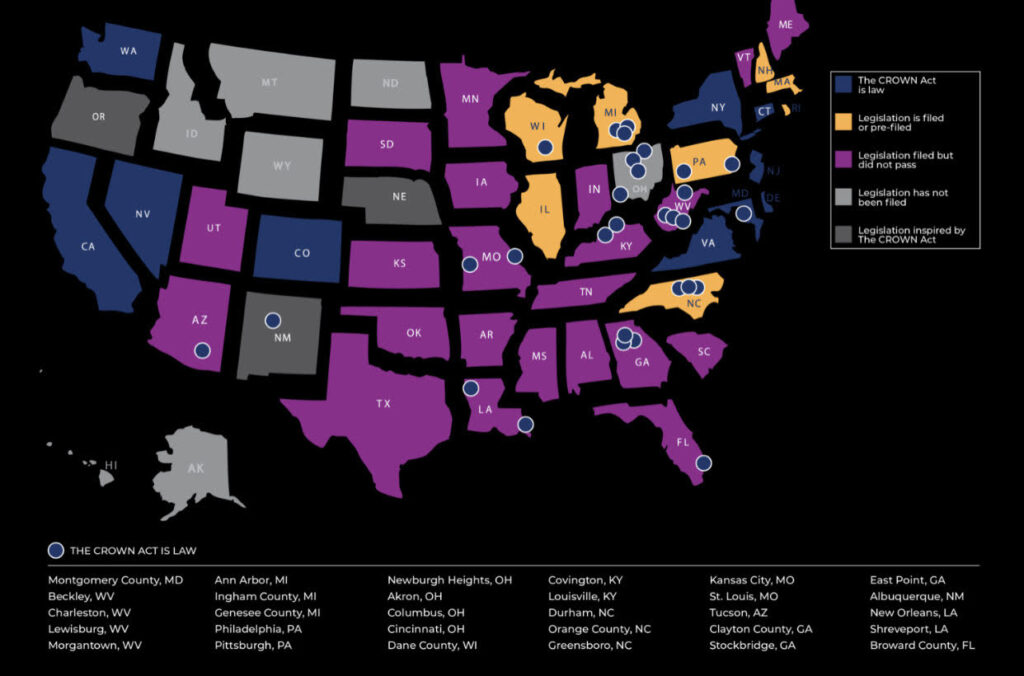
14 out of 30 states have made the Crown Act a law. The Crown Coalition continues to educate and push for an end to race discrimination nationwide.
To find out more information about the Crown Act go to https://www.thecrownact.com/ or if you would like to bring the Crown Act to your state, you can sign this petition https://campaigns.organizefor.org/petitions/help-make-hair-discrimination-illegal.

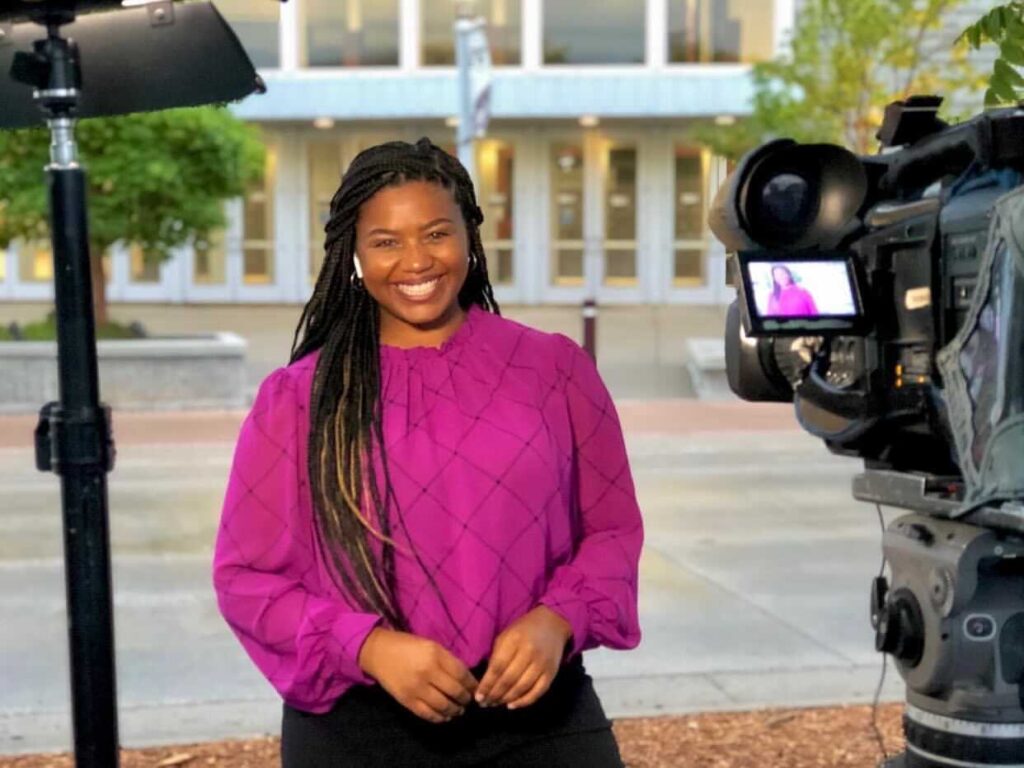
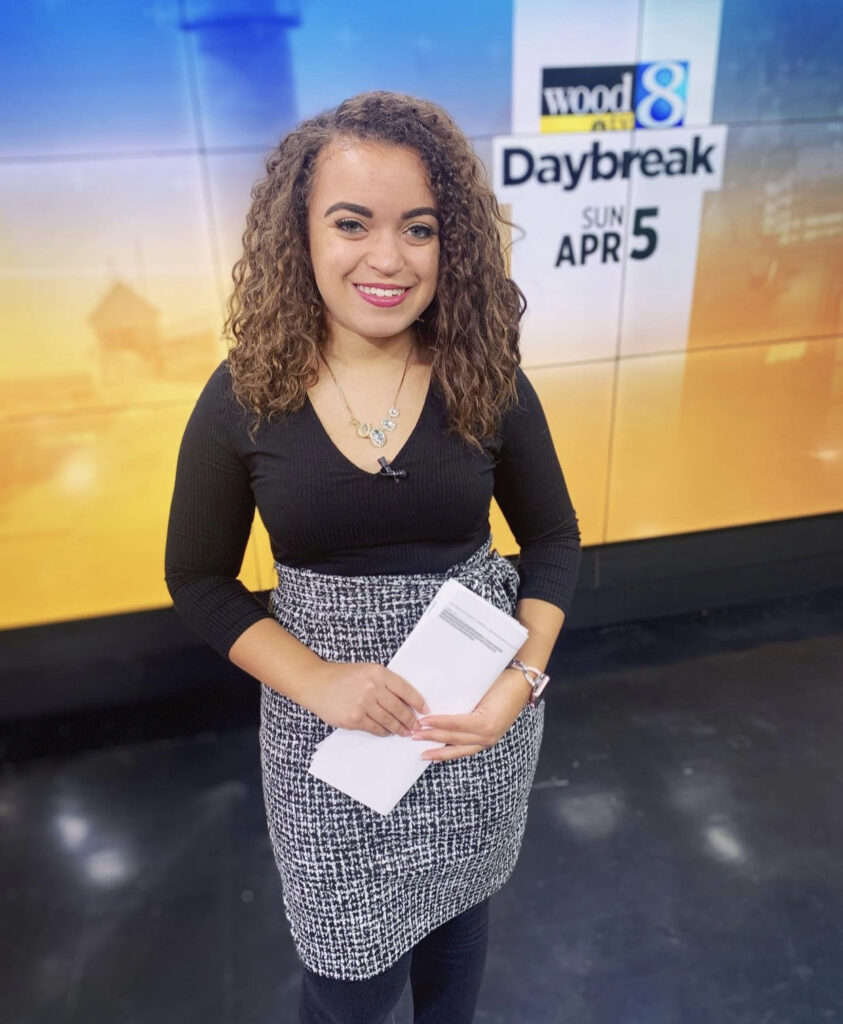
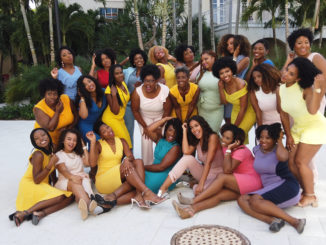
Be the first to comment